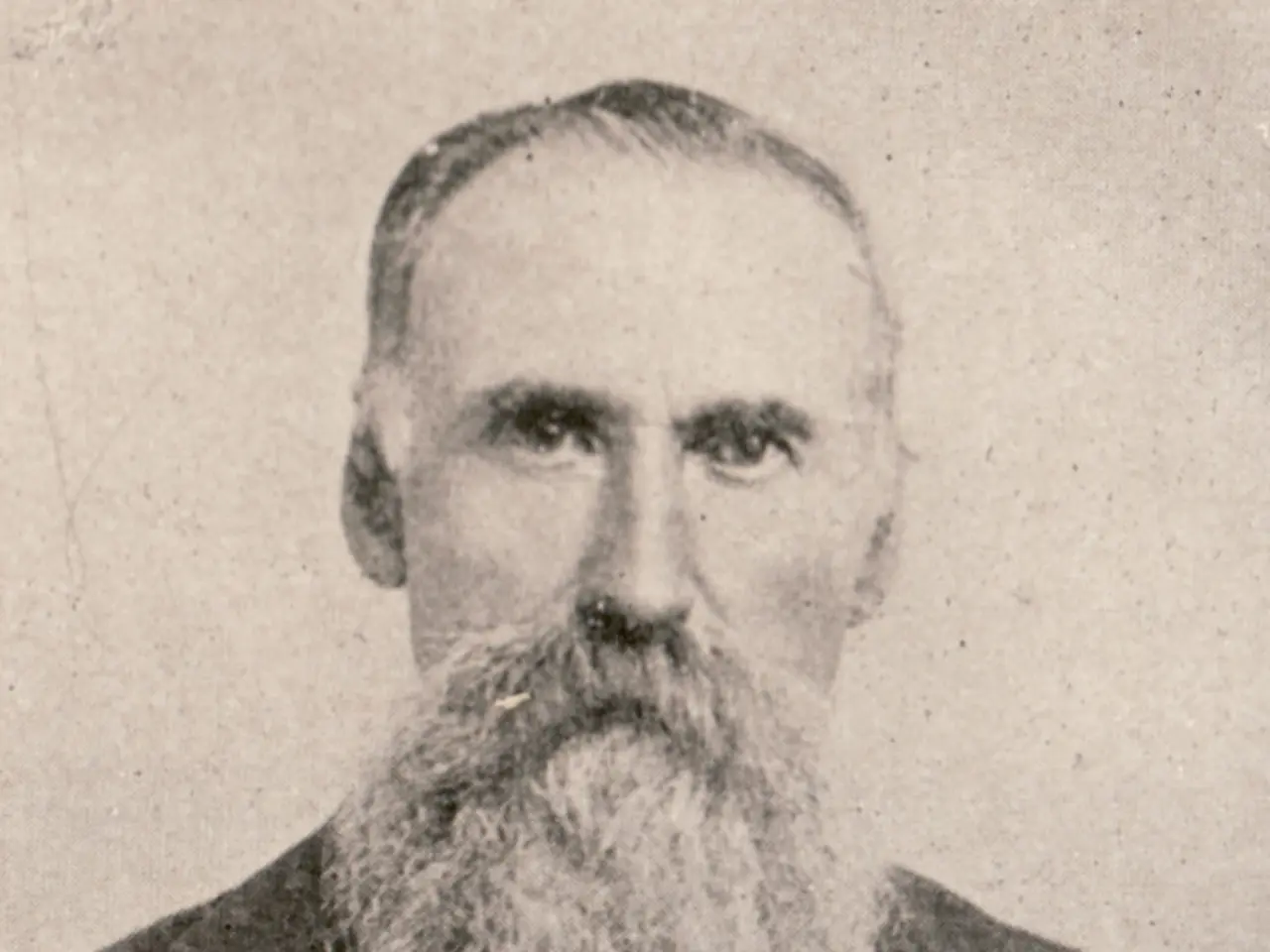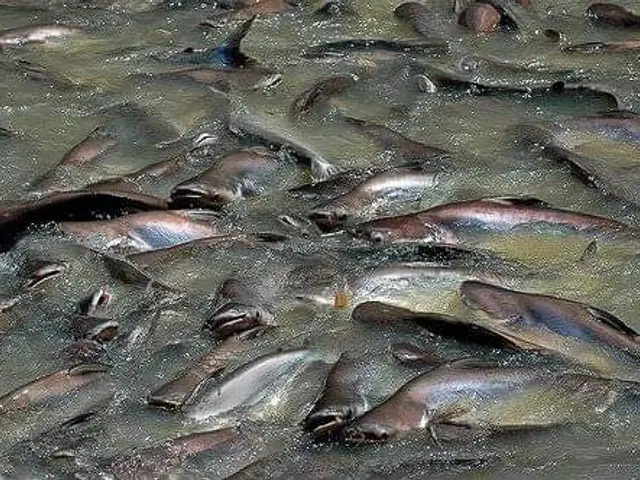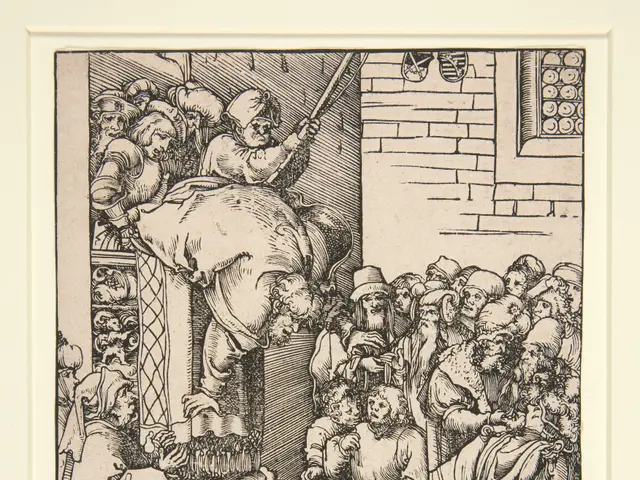Accelerating Beard Growth: Handy Tips for Faster Results
It's no secret that a well-groomed beard can make a statement. But what many may not realise is that the growth and quality of facial hair are influenced by a complex interplay of biological and lifestyle factors. At the heart of it all is testosterone, a hormone that plays a crucial role in stimulating beard growth.
Key Factors Affecting Testosterone Levels
As we age, testosterone levels naturally decline, which can reduce beard growth potential over time. Other factors that can impact testosterone levels include body fat and obesity, diet, physical activity, stress and sleep, environmental toxins, certain medical conditions, and medications.
Excess body fat increases aromatase activity, converting testosterone into estrogen, leading to lower testosterone levels and negatively impacting beard growth. Poor dietary choices, particularly those high in processed foods, trans fats, and sugar, can disrupt hormone production and impair testosterone synthesis and hair follicle function.
Regular exercise, including strength training and high-intensity interval training, enhances testosterone production and thereby promotes beard growth. Chronic stress and lack of sleep, on the other hand, suppress testosterone production, hampering beard development. Exposure to toxins, excessive alcohol, and drug use can also disrupt the hypothalamic-pituitary-gonadal axis, lowering testosterone. Diabetes, thyroid disorders, pituitary or testicular dysfunction, and certain medications can reduce testosterone production, affecting facial hair growth.
The Impact on Beard Growth
Testosterone acts on facial hair follicles to stimulate the growth of a thick, full beard. When testosterone levels are low or its action is inhibited, beard growth may be patchy, slow, or less dense. Genetics also act in concert with testosterone levels to determine overall beard quality.
Some supplements, like shilajit, may support testosterone levels indirectly by providing minerals, antioxidant effects, and energy enhancement, creating a better environment for beard growth.
A Healthy Approach to Beard Growth
A nutritious diet can contribute to healthier and fuller beard growth. Foods high in zinc, such as nuts and chickpeas, can help. Fruits and vegetables high in B vitamins, vitamins A, C, D, and E can be beneficial. Leave-in conditioners for beards can nourish the hair and prevent dandruff.
Facial hair growth varies for everyone, with some individuals growing a full beard during late or middle stages, while others may have sparse areas until their late 20s or never experience significant growth. Nutrients such as zinc may help maintain healthy testosterone levels. Lean protein sources like chicken and salmon are beneficial, as are iron-rich foods such as liver.
If testosterone levels are within typical ranges, supplements will not affect beard growth. However, for individuals with low testosterone, supplements under a doctor's supervision may help increase beard growth. A balanced diet, regular exercise, and a healthy lifestyle can all contribute to optimal testosterone levels and, in turn, support healthier and fuller facial hair.
References:
- Hobbs, F. D. (2002). The role of testosterone in human hair growth. Dermato-endocrinology, 4(3), 209–215.
- Wang, G., & Shen, D. R. (2012). The role of nutritional supplements in male hypogonadism. Asian journal of andrology, 14(1), 1-8.
- Morris, M. A., & Araujo, J. (2010). The biology of aging and testosterone. The Journal of clinical endocrinology and metabolism, 95(7), 2536-2545.
- Traish, A. M., Khera, A., & Savage, M. (2013). The role of testosterone in hair follicle biology and hair loss disorders. The Journal of clinical endocrinology and metabolism, 98(10), E1770-E1784.
- Laughlin, G. A., & Setiawan, V. (2008). The role of nutrition in hair loss. Dermatologic therapy, 21(6), 465-470.
- Age-related decline in testosterone levels can reduce beard growth potential over time, as articulated in Hobbs (2002).
- Excess body fat increases aromatase activity, consequently leading to lower testosterone levels and negatively impacting beard growth, as outlined in Laughlin and Setiawan (2008).
- Poor dietary choices can disrupt hormone production and impede testosterone synthesis and hair follicle function, as discussed in Laughlin and Setiawan (2008).
- Regular exercise, particularly strength training and high-intensity interval training, can enhance testosterone production and promote beard growth, as suggested in Morris and Araujo (2010).
- Chronic stress and lack of sleep suppress testosterone production, hampering beard development, according to Morris and Araujo (2010).
- Exposure to environmental toxins, excessive alcohol, and drug use can disrupt the hypothalamic-pituitary-gonadal axis, lowering testosterone, revealed in Traish, Khera, and Savage (2013).
- Diabetes, thyroid disorders, pituitary or testicular dysfunction, and certain medications can reduce testosterone production, affecting facial hair growth, informed by Traish, Khera, and Savage (2013).
- A nutritious diet, including foods high in zinc and B vitamins, can contribute to healthier and fuller beard growth, as mentioned in Wang and Shen (2012).
- Facial hair growth varies for everyone, with some individuals growing a full beard during late or middle stages, while others may have sparse areas until their late 20s or never experience significant growth, as indicated in Morris and Araujo (2010).
- Nutrients such as zinc may help maintain healthy testosterone levels, as stated in Wang and Shen (2012).
- Lean protein sources like chicken and salmon are beneficial for beard growth, as suggested in Wang and Shen (2012).
- Iron-rich foods such as liver aids in beard growth, as per Wang and Shen (2012).
- If testosterone levels are within typical ranges, supplements will not affect beard growth, as claimed in Hobbs (2002).
- For individuals with low testosterone, supplements under a doctor's supervision may help increase beard growth, according to Hobbs (2002).
- A balanced diet, regular exercise, and a healthy lifestyle can all contribute to optimal testosterone levels and support healthier and fuller facial hair, as advocated in Morris and Araujo (2010).







